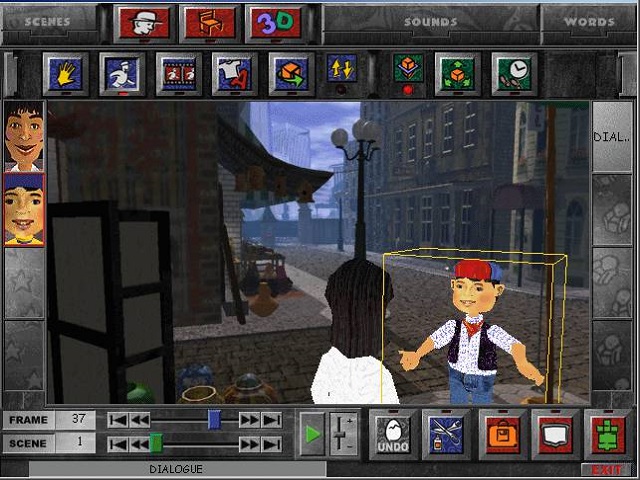
Data sets can tell a wide variety of stories, but accurate stories are achieved only when context is considered.Read More

Data sets can tell a wide variety of stories, but accurate stories are achieved only when context is considered.Read More

Enlarge (credit: Getty Images)
Earth Day was April 22, and its usual message—take care of our planet—has been given added urgency by the challenges highlighted in the latest IPCC report. This year, Ars is taking a look at the technologies we normally cover, from cars to chipmaking, and finding out how we can boost their sustainability and minimize their climate impact.
Gone are the days of going to Blockbuster to pick out a film for a night in. Physical media like CDs, DVDs, Blu-ray discs, Sony’s weird PlayStation Portable UMDs, and countless other formats have been thoroughly dethroned thanks to a barrage of streaming services like Netflix—itself ailing at the moment—Amazon Prime, and Spotify.
For the first time in the past 17 years, CDs saw an increase in sales—of 1.1 percent, or 40.59 million units in 2021, compared to 40.16 million units the year prior. In 2021, people purchased 1.2 billion pieces of physical video media, compared to 6.1 billion a decade prior. Meanwhile, according to the Recording Industry Association of America, revenue from music streaming grew 13.4 percent to $10.1 billion in 2020.

Enlarge / Razer Blade 15. (credit: Razer)
The portability of laptop displays means they often come with compromises in speed, color, or sharpness. For those who want a screen with the deepest contrast and darkest blacks without sacrificing speed, Razer is hoping to have the answer.
The upcoming configuration of the Razer Blade 15 announced Tuesday will be the first laptop to offer a 240 Hz refresh rate in an OLED panel. That makes OLED a more viable option for people, like gamers, who prioritize fast motion processing. Neither OLED monitors, with their high prices, nor OLED TVs have yet to reach such speeds. However, OLED has hit 240 Hz in other designs, such as in this camera’s viewfinder.
The 15.6-inch screen on the upcoming Blade 15 claims a gray-to-gray (GtG) response time of 1 ms, which is as good as it gets for a gaming laptop these days, as well as 100 percent coverage of the wider DCI-P3 color space. As expected with an OLED panel, it’s not super bright. At a claimed 400 nits, there are better laptop displays to use outside on a sunny day, for example.

You, too, can make PS1-caliber 3D movies using nothing but 3D Movie Maker and your Windows 95 PC. (credit: Microsoft)
3:10 pm ET update: We’ve added details on features that 3D Movie Maker aficionados can expect now that the app has been open-sourced.
Original story: Back in 1995, the Microsoft Kids division of the company released a program called Microsoft 3D Movie Maker. The same year that the original Toy Story proved that feature-length 3D computer animation was feasible, people could install software on their home computers that could spit out crude-but-creative 3D animated movies at 6 to 8 frames per second.
Aside from releasing Doraemon and Nickelodeon-specific versions of Movie Maker later on, Microsoft never really returned to this software… until now. Microsoft Developer Division Community Manager Scott Hanselman announced yesterday that Microsoft was open-sourcing the code for 3D Movie Maker, posting it to Github in a read-only repository under an MIT license.

Enlarge (credit: Getty Images | BackyardProduction)
The Federal Aviation Administration is reportedly urging airlines to retrofit or replace altimeters that receive transmissions from outside their allotted frequencies. The FAA is meeting Wednesday “with telecom and airline industry officials on a push to retrofit and ultimately replace some airplane radio altimeters that could face interference from C-Band 5G wireless service,” Reuters reported Tuesday.
The Reuters report continued:
The FAA wants to use the meeting to establish “an achievable timeframe to retrofit/replace radar altimeters in the US fleet,” according to a previously unreported letter from the FAA’s top aviation safety official Chris Rocheleau reviewed by Reuters. It also asked aviation representatives “to offer options and commit to actions necessary to meet these objectives.”
Some altimeters used by airplanes to measure altitude apparently cannot filter out transmissions from C-Band frequencies assigned to wireless carriers for 5G. Altimeters are supposed to use frequencies from 4.2 GHz to 4.4 GHz, while wireless carriers’ C-Band licenses are for 3.7 GHz to 3.98 GHz.

Enlarge / Wordle‘s value to The New York Times isn’t much of a puzzle. (credit: Wordle / NYT)
The New York Times’ seven-figure purchase of viral hit Wordle in January was “incredibly valuable” to the company and was responsible for “an unprecedented tens of millions of new users to The Times,” the media giant said in announcing its quarterly earnings Wednesday morning. And while New York Times Co. CEO Meredith Kopit Levien said the “majority of these incremental users only played Wordle, many… stayed to play other games, which drove our best quarter ever for net subscriber additions to Games.”
Levien said during an earnings call that the number of average weekly users for the Times’ non-Wordle games “nearly doubled” during the quarter ending in March. The game “played an outsized role in the quarter’s engagement and subscriber growth,” she added.
The Wordle acquisition was part of a larger effort to make The New York Times seem “more valuable to more people by helping them make the most of their lives and passions,” Levien said during the call.

AEW: Fight Forever is heading to PC as well as console, and the wrestling promotion confirmed some other details about the game.Read More